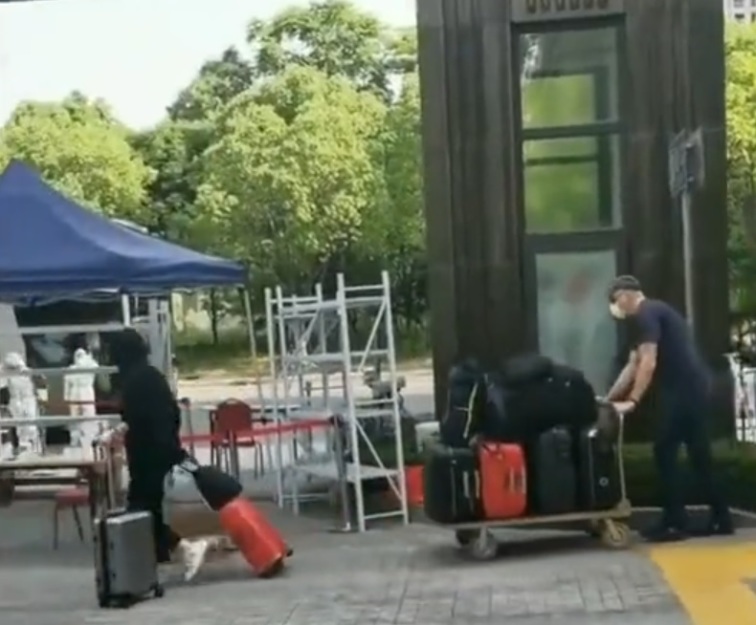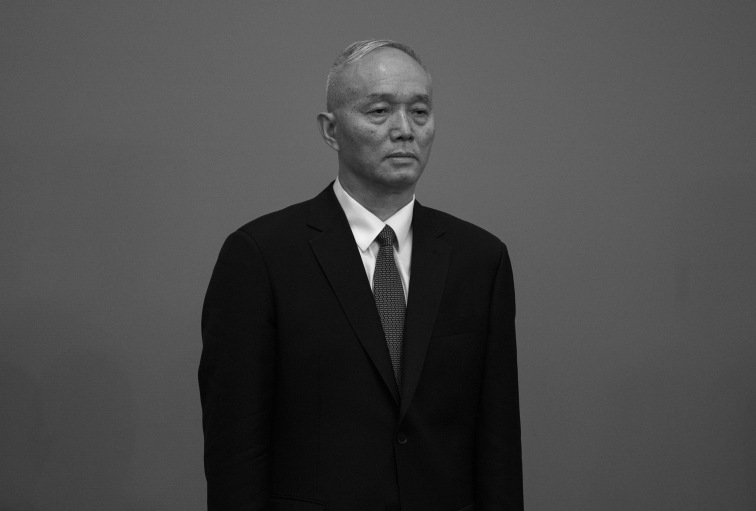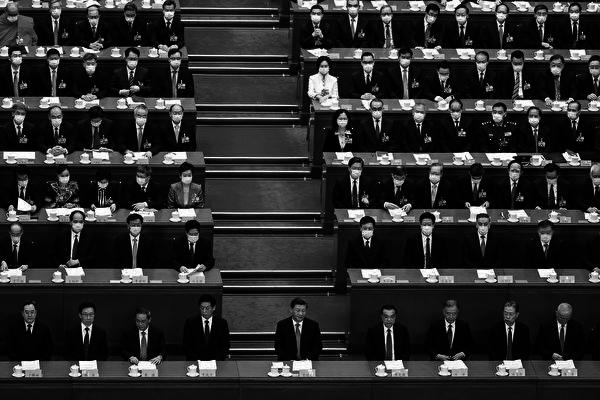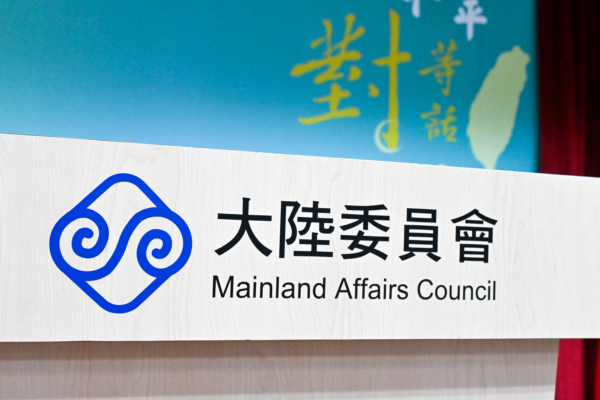Photo: The emergency room of a hospital in Shanghai. China’s population crisis exacerbates hospital financial problems. (Photo by Kevin Frayer/Getty Images.)
People News - Recently, reports of hospitals defaulting on salaries and going bankrupt have surfaced across China. During the COVID-19 pandemic, the Chinese government implemented large-scale prevention measures, leading to a surge in hospital expenses. At the same time, many patients avoided crowded hospital waiting rooms to reduce the risk of infection, resulting in declining hospital revenues. As China’s real estate sector collapsed and the economy weakened, people saw their incomes shrink, leading to delayed or reduced medical visits. Local governments, struggling with tight budgets, have been unable to provide much-needed financial support to public hospitals. Additionally, with China's declining population and aging demographic, healthcare costs have risen beyond the capacity of the national insurance system. In response, health insurance providers have cut reimbursements for surgeries and medications, pushing hospitals into financial distress.
According to Radio Free Asia, hospitals—both public and private—across China have been reporting bankruptcies, unpaid wages, and closures.
Last year, Huiren Hospital in Suqian, Jiangsu Province, posted a legal notice at its entrance detailing its financial struggles. This private hospital was warned for failing to pay staff wages, and after failing to meet its obligations for four months, it eventually declared bankruptcy in September 2023.
The New York Times reported that at the end of 2023, Jiaying University Affiliated Hospital, a public hospital in Meizhou, Guangdong Province, temporarily suspended operations. The main reason was that its medical staff had gone unpaid for ten months and were subsequently asked to resign, leading the hospital to enter an asset liquidation process.
To achieve the highest hospital classification, Jiaying University Affiliated Hospital invested 120 million yuan in 2021 to construct new buildings and purchase advanced medical equipment. However, during and after the pandemic, its revenue plummeted, and by 2023, its business had dropped to half of pre-pandemic levels, leading to severe financial difficulties.
Li Hengqing, an economist at the Maryland Strategic and Information Research Institute, highlighted four main factors contributing to the crisis: Public distrust in the healthcare system. Overdevelopment of hospitals during the real estate boom. The collapse of the national health insurance system. Structural changes in China’s population.
Ji Junhui, a professor at Oregon State University’s School of Public Health, stated that the financial troubles hospitals are facing today stem from the economic impact of the COVID-19 pandemic.
According to official Chinese statistics, as of the end of 2023, China had 38,355 hospitals, of which 26,583 were private, accounting for 69% of the total. However, private hospitals only accounted for 30% of hospital beds nationwide.
Despite outnumbering public hospitals by a two-to-one ratio, private hospitals handled only 700 million outpatient visits in 2023, making up just 16.5% of total hospital visits. Additionally, private hospitals admitted 44.93 million inpatients, representing only 18% of the total hospital admissions nationwide. In both outpatient and inpatient cases, private hospitals served fewer than one-fifth of all patients.
As China's real estate market collapses, many hospitals—especially private ones—have been forced to shut down.
Medical Insurance Deficits Intensify Financial Problems for Hospitals
China's population crisis is worsening the financial challenges faced by hospitals. The growing elderly population has increased the burden of medical expenses, while the number of young people contributing to medical insurance is steadily decreasing.
China has two main medical insurance plans that cover approximately two-thirds of its 1.4 billion population, including rural residents and urban self-employed individuals or the unemployed, as well as children and the elderly. While the Chinese government provides financial subsidies, participants are still required to pay medical insurance premiums.
According to a report by The New York Times, the number of people paying for medical insurance in China has declined for four consecutive years, with economic hardships prompting more individuals to drop their coverage. Liu Junqiang, a sociology professor at Tsinghua University, estimates that the medical insurance fund will be exhausted within the next decade.
Ji Junhui noted that local governments' lack of funding has led to reduced medical insurance benefits, further exacerbating hospital bankruptcies. Publicly available data shows a continuous increase in the number of hospital bankruptcies in China.
In a signed article by Wang Mingxiao published in Health World, it is stated that since the Chinese Communist Party fully implemented the DRG/DIP payment reform, cost control has become more stringent. Doctors and managers in private hospitals, coming from various types of institutions, need to adapt to and understand the new payment model that shifts from project-based to disease-based payments. Currently, most private hospitals are struggling to adjust to the DRG/DIP payment reform, with many disease categories exceeding payment limits, leading to negative balances in medical insurance funds.
Li Hengqing pointed out that the adverse effects of DRG/DIP on the medical insurance system have discouraged many young people from contributing to medical insurance.
Hospitals Are Under Pressure to Transform Their Operations
The 21st Century Business Herald reported that Liu Jian, a member of the Medical Equipment Development Promotion Committee of the China Medical Education Association, stated that the closure of private hospitals is a natural outcome of traditional practices being phased out by new cycles and times. He emphasized that innovation is the key to addressing this issue. According to Liu, in the future, private hospitals should adopt a light asset operating model characterized by small clinics, large specialists, and chain operations, which could significantly mitigate risks.
Liu explained that the primary cause of hospital closures is population movement. The public hospitals that have recently shut down are predominantly located in prefecture-level cities or third- and fourth-tier cities experiencing severe population outflow. The influx of people into economically developed regions has led to the depopulation of urban areas, resulting in a natural decline in medical demand, which makes the closure of large hospitals a normal occurrence.
He further noted that to tackle the issue of access to medical care, China is implementing a tiered healthcare system, focusing on the robust development of grassroots healthcare. This has led to substantial improvements in both the quantity and quality of community hospitals, thereby diminishing the appeal of large hospitals.
Li Hengqing acknowledged the progress of tiered medical care but pointed out that many shortcomings and problems still exist.
In September of last year, the Chinese government announced the opening of the healthcare sector to foreign investment. Li Hengqing remarked that this move holds more political significance than practical value, benefiting only a small elite of privileged and wealthy individuals.
Professor Ji Junhui concurred, stating that foreign-funded hospitals in China will not serve the broader public, as ordinary citizens cannot afford the treatment costs associated with these facilities. Additionally, even if China were to introduce commercial health insurance, it would still fail to address the healthcare challenges faced by lower-income populations.
According to Ji Junhui, to genuinely protect the health of the Chinese population, it is essential to effectively carry out the concept of universal health insurance that was introduced by the Chinese Communist Party government in 2009.











News magazine bootstrap themes!
I like this themes, fast loading and look profesional
Thank you Carlos!
You're welcome!
Please support me with give positive rating!
Yes Sure!